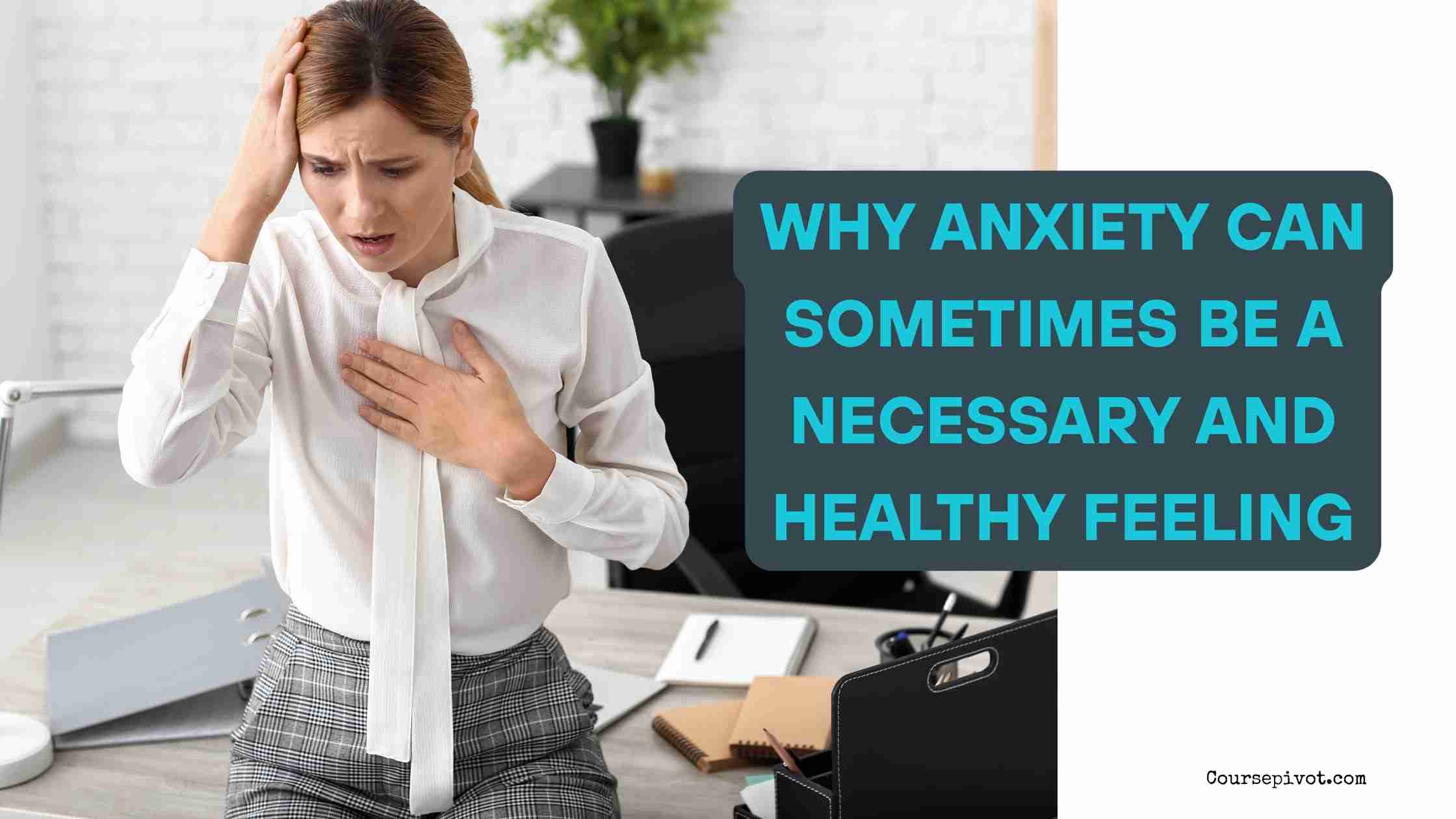
Why Anxiety Can Sometimes Be a Necessary and Healthy Feeling
We usually talk about anxiety like it’s the enemy—something to get rid of, avoid, or suppress. And yes, when anxiety becomes overwhelming, chronic, or paralyzing, it can absolutely interfere with life.
But here’s the truth we don’t hear often enough:
Anxiety, in the right context, is both necessary and healthy.
It took me a while to understand this. For a long time, I thought any anxious feeling meant something was wrong with me. But I’ve come to see that anxiety isn’t always harmful—it’s often a built-in tool for growth, survival, and motivation.
Table of Contents
Let me explain why.
🧠 1. Anxiety Is a Natural Survival Mechanism
Anxiety is hardwired into our nervous system to protect us. It’s part of our fight-or-flight response—a warning signal that something needs attention.
When your brain senses a threat (real or perceived), it triggers anxiety to help you:
- Stay alert
- Avoid danger
- Prepare for action
If you’re walking down a dark alley and feel uneasy, that anxious energy might make you more aware of your surroundings or prompt you to turn around. That’s not dysfunction. That’s intuition.
Without anxiety, we might ignore red flags or walk into harmful situations unaware.
⏰ 2. Anxiety Can Push You to Prepare
A little anxiety before a test, presentation, or interview? That’s not weakness. That’s your mind telling you, “This matters—get ready.”
Healthy anxiety often shows up before important moments:
- Studying for exams
- Practicing before a speech
- Double-checking travel plans
- Preparing for a big decision
It’s a motivator. It sharpens your focus and helps you care more deeply about the outcome.
I’ve given some of my best performances because I was a little anxious beforehand. It pushed me to take things seriously—and it paid off.
⚖️ 3. It Helps You Recognize Boundaries
Sometimes anxiety is your brain’s way of telling you a boundary is being tested or crossed.
For example:
- Feeling anxious around certain people may signal that something’s off
- Feeling uneasy about a job or relationship may reflect unmet emotional needs
- Anxiety before saying “yes” to a commitment might mean you’re already stretched too thin
In these cases, anxiety isn’t irrational—it’s informative.
I used to ignore that inner nudge, thinking it was just fear. But learning to listen to my anxiety helped me make smarter, more aligned decisions.
🌱 4. Anxiety Can Be a Catalyst for Growth
Personal growth is rarely comfortable. And whenever we step out of our comfort zone—starting therapy, taking risks, setting goals—anxiety tends to show up.
That doesn’t mean you’re not ready. It means you’re entering new territory.
Anxiety is part of the transformation process:
- It shows up when you’re evolving
- It means you care about what you’re doing
- It reminds you that you’re human
I’ve learned to see anxiety not as a stop sign, but as a signal: You’re moving toward something meaningful.
🔁 5. It Can Teach You to Slow Down and Reflect
Sometimes anxiety comes up because we’re going too fast, neglecting our needs, or avoiding something unresolved. In that sense, anxiety is like an emotional check-engine light.
It says:
- “Pause.”
- “Pay attention.”
- “Check in with yourself.”
Rather than brushing it off or pushing it away, asking “Why am I feeling this right now?” can lead to powerful insights.
When I started journaling my anxious thoughts instead of fighting them, I discovered patterns and triggers I didn’t even know existed.
Final Thought: Anxiety Isn’t Always the Villain
Yes, anxiety can become overwhelming and even debilitating—and when it does, seeking help is essential.
But it’s also important to know that not all anxiety is bad.
Sometimes, it’s:
- Protective
- Motivational
- Informative
- Reflective
- Growth-inducing
Rather than trying to eliminate it completely, we can learn to work with it—using it as a compass instead of a cage.
Because sometimes, feeling anxious means you’re alive, aware, and on the edge of something new.
Cite this article
You can copy and paste your preferred citation format below.
Martin, L. & Arquette, E.. (2025, May 15). Why Anxiety Can Sometimes Be a Necessary and Healthy Feeling. Coursepivot.com. https://coursepivot.com/blog/why-anxiety-can-sometimes-be-a-necessary-and-healthy-feeling/



